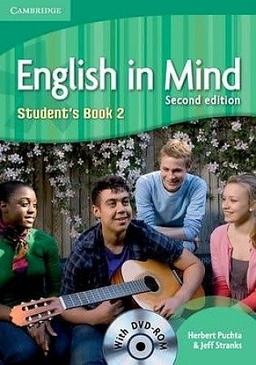
EIM2 Progress Test Units 7-8
Quiz by KHAN Nurhayati (WOL-Teacher)
General
Linguistic Competences
Common European Framework of Reference for Languages (CEFR)
Feel free to use or edit a copy
includes Teacher and Student dashboards
Measure skillsfrom any curriculum
Measure skills
from any curriculum
Tag the questions with any skills you have. Your dashboard will track each student's mastery of each skill.
With a free account, teachers can
- edit the questions
- save a copy for later
- start a class game
- automatically assign follow-up activities based on students’ scores
- assign as homework
- share a link with colleagues
- print as a bubble sheet
43 questions
Show answers
- Q1Read the sentence. Then listen to a radio programme about robots. Are the sentences (T) true or (F) false? Robots only exist in science fiction.falsetrueTrue or False30s
- Q2Read the sentence. Then listen to a radio programme about robots. Are the sentences (T) true or (F) false? The first robot was designed by Leonardo da Vinci.truefalseTrue or False30s
- Q3Read the sentence. Then listen to a radio programme about robots. Are the sentences (T) true or (F) false? ‘Unimate’ was used to move hot pieces of metal.truefalseTrue or False30s
- Q4Read the sentence. Then listen to a radio programme about robots. Are the sentences (T) true or (F) false? They are only used for cheap and safe activities.falsetrueTrue or False30s
- Q5Read the sentence. Then listen to a radio programme about robots. Are the sentences (T) true or (F) false? Today robots are used for many different tasks.truefalseTrue or False30s
- Q6Read the sentence. Then listen to a radio programme about robots. Are the sentences (T) true or (F) false? In Japan there are robots which help young people.falsetrueTrue or False30s
- Q7Read the sentence. Then listen to a radio programme about robots. Are the sentences (T) true or (F) false? NASA is developing new space explorers.truefalseTrue or False30s
- Q8Read the sentence. Then listen to a radio programme about robots. Are the sentences (T) true or (F) false? Most people would be scared to have a robot in their home.falsetrueTrue or False30s
- Q9Read the sentence. Then listen to a radio programme about robots. Are the sentences (T) true or (F) false? New robots can read newspapers.falsetrueTrue or False30s
- Q10Read the sentence. Then listen to a radio programme about robots. Are the sentences (T) true or (F) false? The radio presenter hasn’t got a robot vacuum cleaner.truefalseTrue or False30s
- Q11Read the sentence. Then listen to a radio programme about robots. Are the sentences (T) true or (F) false? The presenter has a cup of tea with the robot.falsetrueTrue or False30s
- Q12Complete the text using the correct form of the verbs in the box. Use the past simple passive. There has been a lot of rain for the last three days and last night our village 0 was flooded. Fortunately nobody 1 ........................................ , but some dogs and cats 2 ........................................ . Some people 3 ........................................ from the roofs of their houses. I don’t think any homes 4 ........................................ completely, but some 5 ........................................ by the water. It will take a lot of time and money to put things right.Users link answersLinking30s
- Q13Complete the text. Use the past simple passive form or too much / too many / not enough. Last summer I went on holiday to Greece. We stayed in a hotel that 0 was built in the 1970s. It was ugly, but it was by the sea. Because it was August, however, there were 1 .............................. people on the beach and 2 .............................. sun beds and umbrellas. Luckily, we 3 .............................. to an island every day on a friend’s boat. It was great, but on the second day I spent 4 .............................. time in the sun and got quite burnt. After that I 5 .............................. a beach umbrella to take with me. Next year we’re going to go to Scotland!Users link answersLinking30s
- Q14Complete the sentences with will or be going to. Do not use contractions. For example: I am not going to study at university. I want to start working. A: These bags are so heavy. B: Don’t worry. I .............................. help you.Users enter free textType an Answer30s
- Q15Complete the sentences with will or be going to. Do not use contractions. For example: I am not going to study at university. I want to start working. I think George __________ be very successful. He’s very determined.Users enter free textType an Answer30s